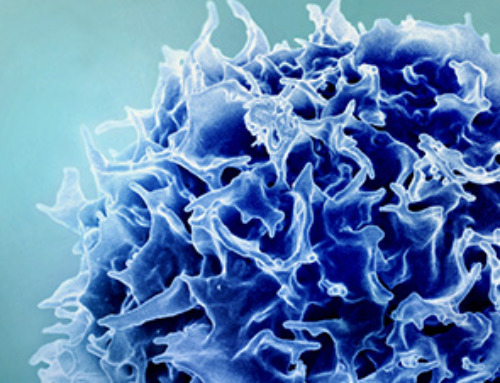- Although the currently available COVID-19 vaccines are highly effective, limited manufacturing capacity and the need for cold-chain storage hinder their global distribution.
- A recent study tested the efficacy of a new adeno-associated virus (AAV) vector-based vaccine in mice and macaques.
- A single dose of the AAV-based vaccine provided protection against SARS-CoV-2 infection in macaques and elicited a potent immune response against the virus for at least 11 months.
- The vaccine was stable at room temperature for 1 month and could potentially be manufactured on a large scale using established processes.
While nearly 42% of the global population have received at least one dose of a COVID-19 vaccine, only 1.9% of individuals in low income countries have received at least one vaccine dose.
This inequitable distribution is, at least partly, due to the limited supply of vaccines and the stockpiling of vaccines by rich nations.
With the successful vaccination of a substantial proportion of the population in wealthier countries, the supply and distribution of vaccines to middle and low income nations are improvingTrusted Source.
However, despite the increase in the supply of the vaccines that provide a high degree of protection against COVID-19, the vaccines do have limitations.
The current COVID-19 vaccines includeTrusted Source mRNA vaccines, such as the Pfizer-BioNTech and Moderna vaccines, and adenovirus vaccines, such as the Oxford-AstraZeneca and Johnson & Johnson vaccines.
All of these, except the Johnson & Johnson vaccine, involve a two-dose regimen, and many of them require storage at cold or ultracold temperatures.
The finite global manufacturing capacity and the lack of the necessary cold storage infrastructure in low income countries are some of the major challenges impeding the global supply and availability of vaccines.
This, along with the emergence of new SARS-CoV-2 variants and the uncertainty about the duration of protection the currently available vaccines provide, suggests the need for new, durable, and easily deployable vaccines.
To address these concerns, a group of researchers is developing a vaccine candidate using an AAV as a vector.
Authors of a recent study, which appears in the journal Cell Host & Microbe, found that a single dose of a vaccine candidate AAVCOVID-1 (AC1) elicited an immune response against SARS-CoV-2 for at least 11 months in macaques. The vaccine candidate was also stable at room temperature for 1 month and produced an immune response against current variants of concern.
Lead author of the study, Dr. Luk Vandenberghe, associate professor at Harvard University and director of the Grousbeck Gene Therapy Center in Boston, MA, told Medical News Today:
“COVID-19 is a continued global health concern for which a number of highly effective vaccines are available to mitigate the pandemic. The data on our experimental vaccine shows that it has the potential to address two of the remaining concerns that prevent effective management of the situation.”
“First, vaccines need to be available for effective deployment worldwide: our data indicates AAVCOVID to be a single-dose vaccine with room-temperature stability to facilitate vaccine campaigns effectively. Second,” Dr. Vandenberghe continued, “our animal data indicates a durability of the immune response that is generally thought to be leading to protection from disease.”
News
New study suggests a way to rejuvenate the immune system
Stimulating the liver to produce some of the signals of the thymus can reverse age-related declines in T-cell populations and enhance response to vaccination. As people age, their immune system function declines. T cell [...]
Nerve Damage Can Disrupt Immunity Across the Entire Body
A single nerve injury can quietly reshape the immune system across the entire body. Preclinical research from McGill University suggests that nerve injuries may lead to long-lasting changes in the immune system, and these [...]
Fake Science Is Growing Faster Than Legitimate Research, New Study Warns
New research reveals organized networks linking paper mills, intermediaries, and compromised academic journals Organized scientific fraud is becoming increasingly common, ranging from fabricated research to the buying and selling of authorship and citations, according [...]
Scientists Unlock a New Way to Hear the Brain’s Hidden Language
Scientists can finally hear the brain’s quietest messages—unlocking the hidden code behind how neurons think, decide, and remember. Scientists have created a new protein that can capture the incoming chemical signals received by brain [...]
Does being infected or vaccinated first influence COVID-19 immunity?
A new study analyzing the immune response to COVID-19 in a Catalan cohort of health workers sheds light on an important question: does it matter whether a person was first infected or first vaccinated? [...]
We May Never Know if AI Is Conscious, Says Cambridge Philosopher
As claims about conscious AI grow louder, a Cambridge philosopher argues that we lack the evidence to know whether machines can truly be conscious, let alone morally significant. A philosopher at the University of [...]
AI Helped Scientists Stop a Virus With One Tiny Change
Using AI, researchers identified one tiny molecular interaction that viruses need to infect cells. Disrupting it stopped the virus before infection could begin. Washington State University scientists have uncovered a method to interfere with a key [...]
Deadly Hospital Fungus May Finally Have a Weakness
A deadly, drug-resistant hospital fungus may finally have a weakness—and scientists think they’ve found it. Researchers have identified a genetic process that could open the door to new treatments for a dangerous fungal infection [...]
Fever-Proof Bird Flu Variant Could Fuel the Next Pandemic
Bird flu viruses present a significant risk to humans because they can continue replicating at temperatures higher than a typical fever. Fever is one of the body’s main tools for slowing or stopping viral [...]
What could the future of nanoscience look like?
Society has a lot to thank for nanoscience. From improved health monitoring to reducing the size of electronics, scientists’ ability to delve deeper and better understand chemistry at the nanoscale has opened up numerous [...]
Scientists Melt Cancer’s Hidden “Power Hubs” and Stop Tumor Growth
Researchers discovered that in a rare kidney cancer, RNA builds droplet-like hubs that act as growth control centers inside tumor cells. By engineering a molecular switch to dissolve these hubs, they were able to halt cancer [...]
Platelet-inspired nanoparticles could improve treatment of inflammatory diseases
Scientists have developed platelet-inspired nanoparticles that deliver anti-inflammatory drugs directly to brain-computer interface implants, doubling their effectiveness. Scientists have found a way to improve the performance of brain-computer interface (BCI) electrodes by delivering anti-inflammatory drugs directly [...]
After 150 years, a new chapter in cancer therapy is finally beginning
For decades, researchers have been looking for ways to destroy cancer cells in a targeted manner without further weakening the body. But for many patients whose immune system is severely impaired by chemotherapy or radiation, [...]
Older chemical libraries show promise for fighting resistant strains of COVID-19 virus
SARS‑CoV‑2, the virus that causes COVID-19, continues to mutate, with some newer strains becoming less responsive to current antiviral treatments like Paxlovid. Now, University of California San Diego scientists and an international team of [...]
Lower doses of immunotherapy for skin cancer give better results, study suggests
According to a new study, lower doses of approved immunotherapy for malignant melanoma can give better results against tumors, while reducing side effects. This is reported by researchers at Karolinska Institutet in the Journal of the National [...]
Researchers highlight five pathways through which microplastics can harm the brain
Microplastics could be fueling neurodegenerative diseases like Alzheimer's and Parkinson's, with a new study highlighting five ways microplastics can trigger inflammation and damage in the brain. More than 57 million people live with dementia, [...]





















